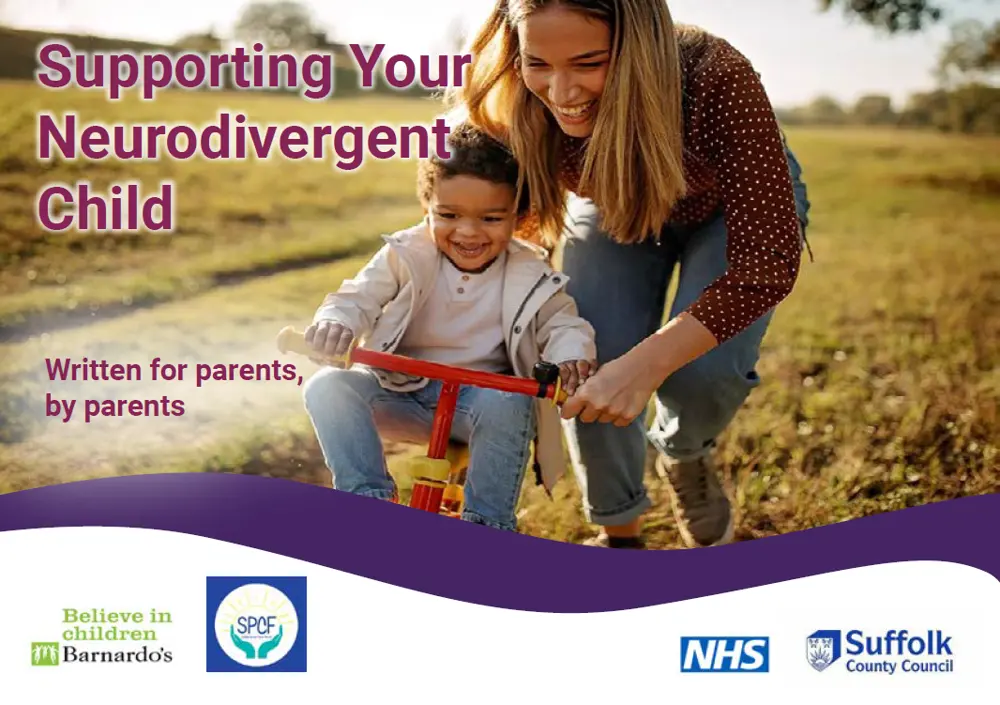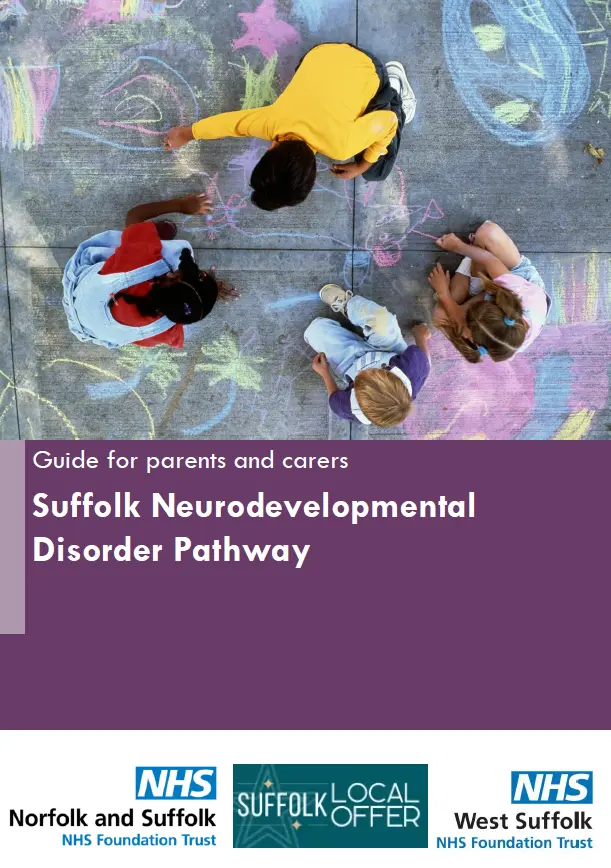You can help us make the Suffolk Local Offer more useful and accessible by taking part in our feedback survey.
If you suspect that your child has a neurodevelopmental condition such as Autism or ADHD, it can be an anxious time.
In recent years, referrals for autism and ADHD assessment have greatly increased, causing waiting times both nationally and locally to be at an all-time high. We understand the frustration this can cause and want to give you as much clarity as possible on what to expect throughout the process, how to get support while you wait, and some other resources that may support you and your young person through the journey.

The material in this online resource was originally created by three organisations, Essex Family Forum, Send the Right Message and MyOTAS.
Suffolk has reproduced this document with their permission, replacing Essex content with Suffolk local information gathered from a range of sources, and supported by our Suffolk parent Carer Forum.
Written permission is required from Essex Family Forum to distribute or for any duplication that would commercially exploit the content.
The graphic design was produced by Essex County Council.
Services and Support
NHS Suffolk and North East Essex ICB is responsible for buying health services and awarding contracts to organisations to provide them. Our team of commissioners recently underwent a process to find organisations to provide Neurodevelopmental Support Services for children and young people, and we can report this process has now concluded. There has been a change in the providers, as of the 17th October 2025:
- The new services for Suffolk will be KIDS, Home-Start, Go For It!, The Maze Group and Suffolk Family Carers
We are now in the process of ensuring a smooth handover between the current services and the above-mentioned new services. We appreciate this is a time of change, but further timelines and FAQs will be shared in due course. Those individuals currently being supported and on a waiting list will be contacted during this transition to ensure there are no gaps in support.

Other sources of support
We have compiled a library of local and national resources and agencies who aim to help support young people with neurodiversity and their families. You can find this on our Autism, ADHD and NDD Resources page.
